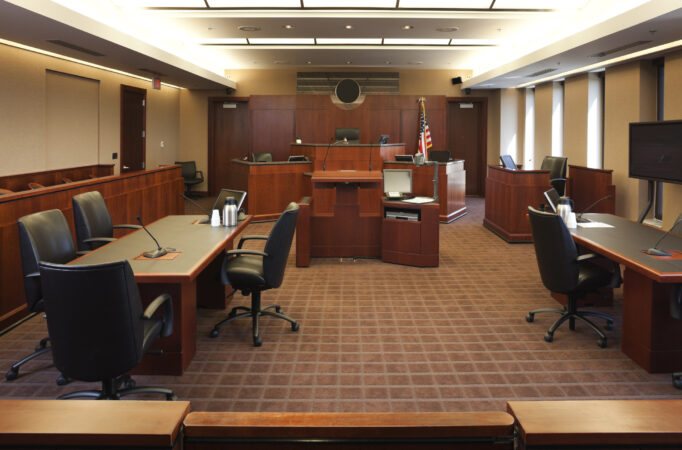Litigation: Latest Legal Blogs and News
Attorney-Client Privilege
Ask anyone, lawyer or non-lawyer, what the attorney-client privilege is and you are likely to get the response: “anything a client says to his attorney is considered confidential.” Interestingly, until recently, the reverse was not true…some statements made to a client by his lawyer were not confidential, and may have had to be disclosed to the adverse side in a litigation matter.
In February 2011 the Pennsylvania Supreme Court, in Gillard v. AIG Insurance Co., 10 EAP 2010 (Pa. Feb. 23, 2011), ruled that the attorney-client privilege protects communications from client to attorney and attorney to client.
William Gillard (Gillard) alleged that AIG Insurance Company (AIG) acted in bad faith in the handling of his uninsured motorist claim. In the discovery phase of this litigation, Gillard sought production of all the documents from the file of the law firm that represented AIG in the underlying coverage matter. AIG withheld and redacted documents created by its law firm on the basis that these documents were protected by the attorney-client privilege. Gillard sought to compel these documents arguing that Pa. Cons. Stat. 59281 limits the attorney-client privilege to communications initiated by the client. Gillard argued that the General Assembly crafted the statutory language so that the attorney-client privilege serves as a one-way street and should be construed in such a fashion. Gillard also argued that a narrow construction of the privilege will minimize any interference in the truth-determining process. AIG argued that the attorney-client privilege is meant to allow open exchanges of relevant information between lawyers and their clients. Therefore, the attorney-client privilege should be a two-way street.
The Pennsylvania Supreme Court acknowledged the inconsistent applications of the attorney-client privilege by courts in the Commonwealth. The Pennsylvania Supreme Court also acknowledged the tension between two competing concepts—candid communications between lawyers and their clients, and the accessibility of information in the truth determining process. The Pennsylvania Supreme Court concluded that “in Pennsylvania the attorney-client privilege operates in a two-way fashion to protect confidential client-to-attorney or attorney-to-client communications made for the purpose of obtaining or providing professional legal advice.” In reaching this conclusion, the Pennsylvania Supreme Court found that there is difficulty in identifying attorney advice from client input and, therefore, the attorney-client privilege should protect communications no matter whether initiated by client or attorney.
1§ 5928. Confidential communications to attorney. In a civil matter counsel shall not be competent or permitted to testify to confidential communications made to him by his client, nor shall the client be compelled to disclose the same, unless in either case this privilege is waived upon the trial by the client.
About Us
The litigation attorneys at Houston Harbaugh, P.C., are accomplished business trial lawyers, providing comprehensive support in litigation across a broad spectrum of matters throughout Pennsylvania, West Virginia, Ohio and other jurisdictions upon a special admission basis. Our clients are regional and national small, medium and large companies and individuals who seek well planned and aggressive, but cost effective litigation. We counsel, we budget, we have a deep bench, we act quickly when needed and we have experienced trial lawyers who know the courts and bench. We serve regularly as local counsel for some of the largest law firms in the country when they have matters in this region.

Henry M. Sneath - Practice Chair
Co-Chair of Houston Harbaugh’s Litigation Practice, and Chair of its Intellectual Property Practice, Henry Sneath is a trial attorney, mediator, arbitrator and Federal Court Approved Mediation Neutral and Special Master with 98 trial verdicts and extensive federal and state court trial experience in cases involving commercial disputes, breach of contract litigation, Artificial Intelligence (AI), intellectual property matters, patent, trademark and copyright infringement, trade secret misappropriation, DTSA claims, cyber security and data breach prevention, mitigation and litigation, employment and restrictive covenant litigation, probate trusts and estates litigation, construction claims, eminent domain, professional negligence lawsuits, pharmaceutical, products liability and catastrophic injury litigation, insurance coverage, and insurance bad faith claims. DTSALaw® Business Litigation. Pittsburgh Strong.®

Samuel H. Simon - Practice Chair
As co-chair of Houston Harbaugh’s Litigation Group, Sam focuses his practice on commercial/business litigation. Sam regularly represents clients in the construction, manufacturing, oil and gas, and wholesale/retail/ distribution industries, as well as individuals in matters such as:
- Construction litigation
- Environmental litigation
- Breach of contract disputes
- Oil and gas litigation
- Negligence
- Restrictive covenants (non-compete agreements)
- Civil rights
- Collections/creditors’ rights
- Lease disputes

